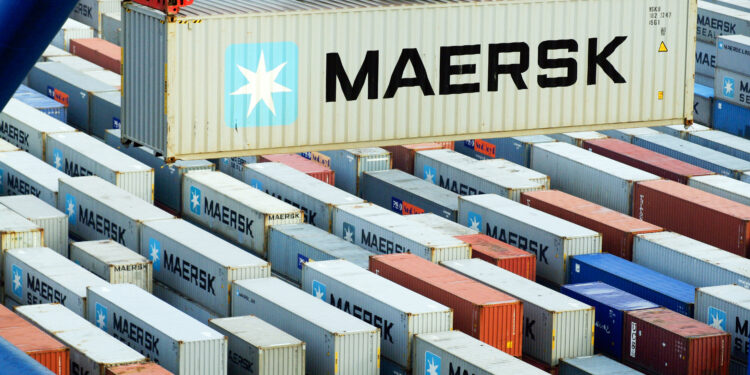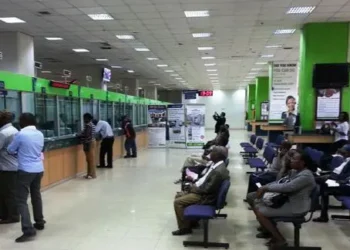Shares of Danish shipping behemoth Maersk nosedived by over 17% during Thursday morning trading, as the company highlighted “high uncertainty” in its 2024 earnings outlook amidst disruptions in the Red Sea and an oversupply of shipping vessels.
The company’s decision to suspend share buybacks further exacerbated investor concerns amid the ongoing challenges in the shipping industry.
Maersk projected an underlying EBITDA (Earnings Before Interest, Taxes, Depreciation, and Amortization) ranging between $1 billion and $6 billion for the current year, a significant drop from the $9.6 billion reported in 2023.
Shares were trading 17.2% lower at 10:50 a.m. London time, reflecting investor unease about the company’s future performance.
CEO Vincent Clerc, speaking on CNBC’s “Squawk Box Europe,” expressed uncertainty about the duration of the disruptions, stating, “We have very little visibility as to whether this is a situation that will resolve in a matter of weeks or months, or whether this is something that is going to be with us for the full year.”
The company’s board swiftly decided to halt the share buy-back program until market conditions in the Ocean division stabilize, indicating caution amidst the challenging environment.
The disruption in the Red Sea has been a significant factor affecting global supply chains since late 2023. Maersk reported fourth-quarter profits below expectations, with EBITDA dropping to $839 million, compared to analysts’ anticipation of $1.13 billion.
The diversion of shipping routes away from the Red Sea, prompted by attacks from Yemen’s Houthi rebels on commercial vessels, has resulted in increased delivery times and costs. These diversions have elevated concerns about inflation, with the OECD warning that persistent disruptions could lead to a nearly 5 percentage point rise in import price inflation across member countries.
Despite increased freight rates resulting from route diversions, Clerc downplayed the potential for significant profit generation, emphasizing the ongoing uncertainty and the substantial costs incurred to maintain global supply chains.
Maersk’s decision to suspend share buybacks underscores the gravity of the challenges facing the shipping industry, with uncertainties surrounding the duration and impact of disruptions in critical shipping lanes.
As the company navigates these turbulent waters, investors remain watchful for signs of stability and resilience amidst ongoing challenges in the global shipping landscape.











